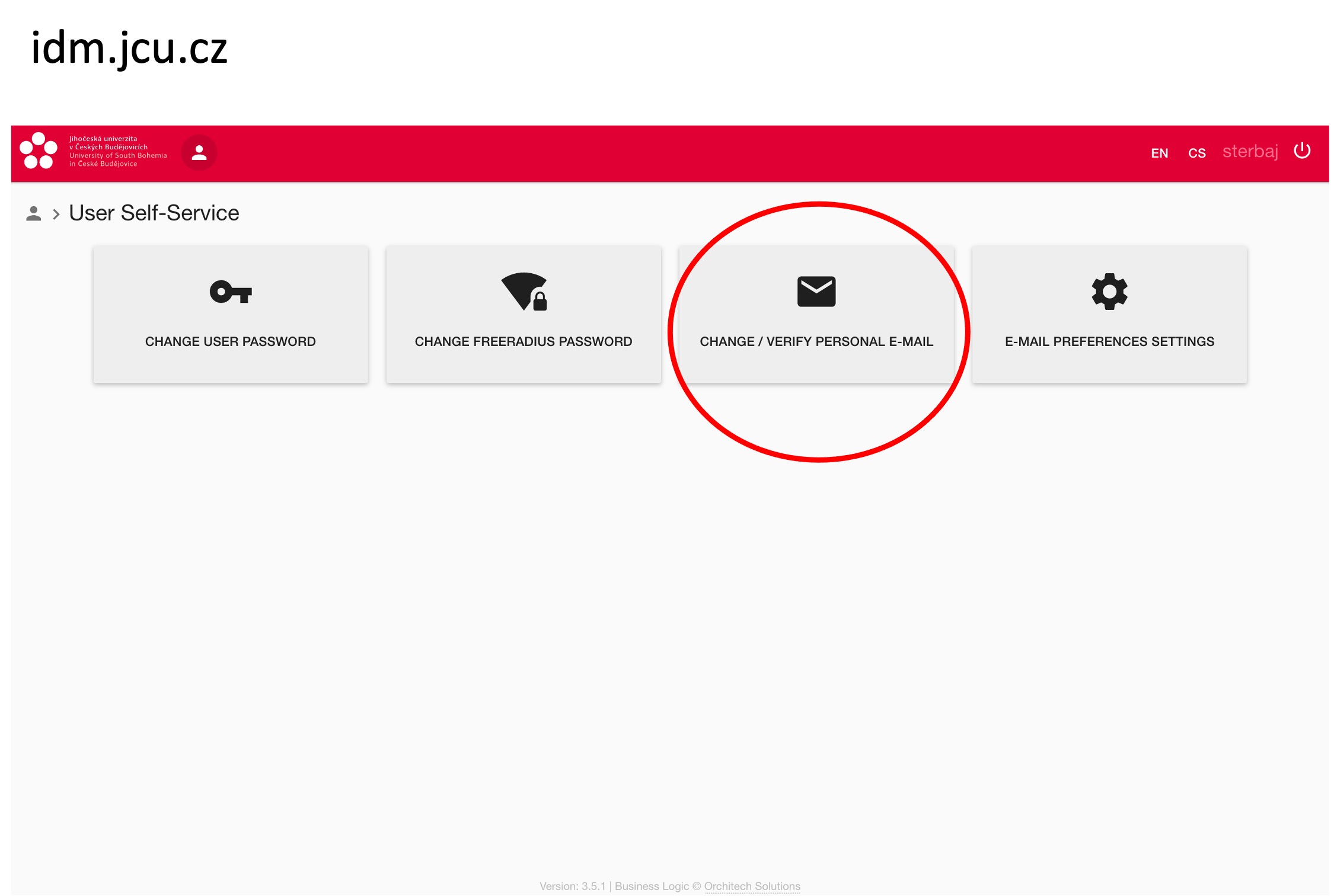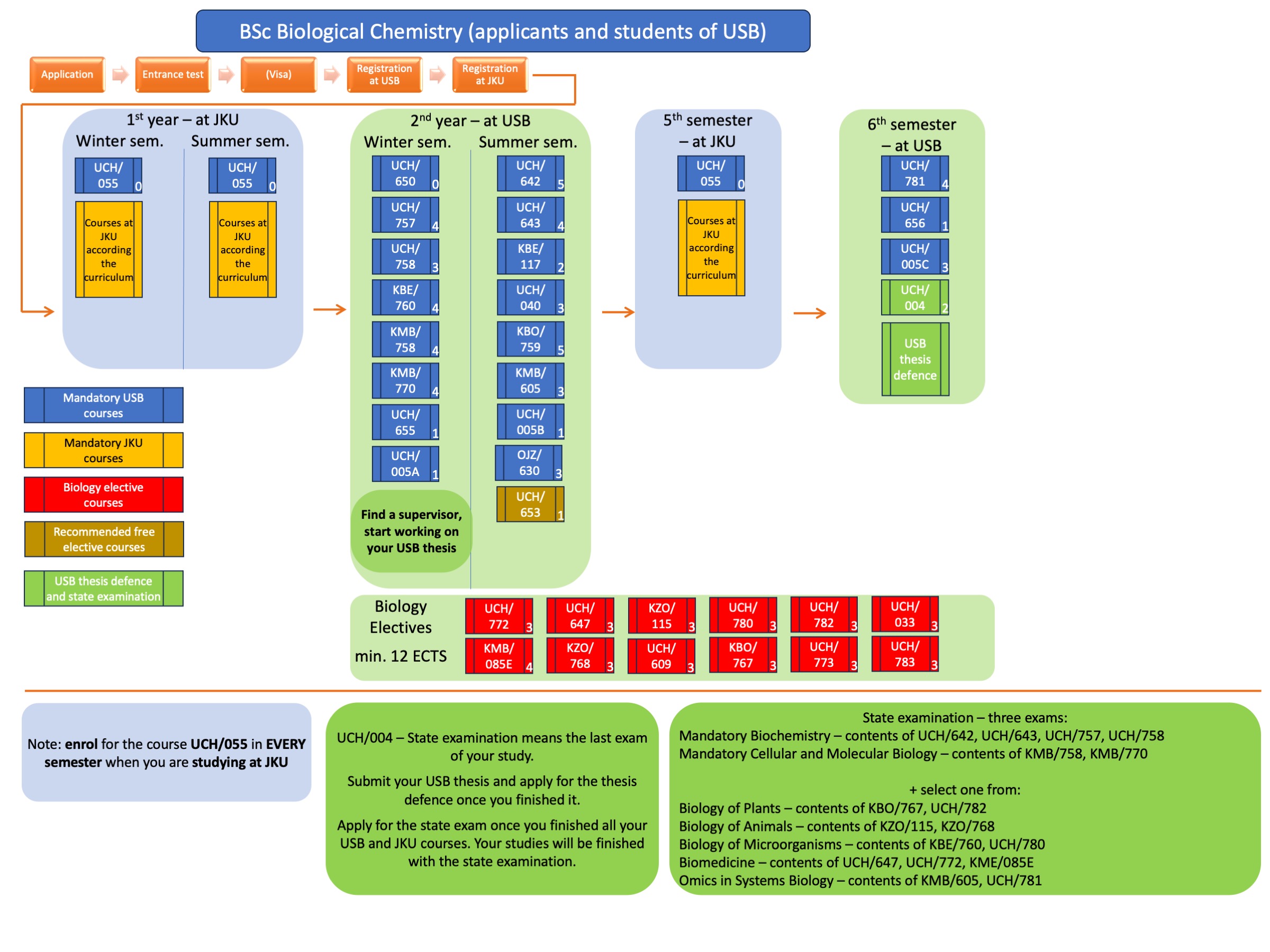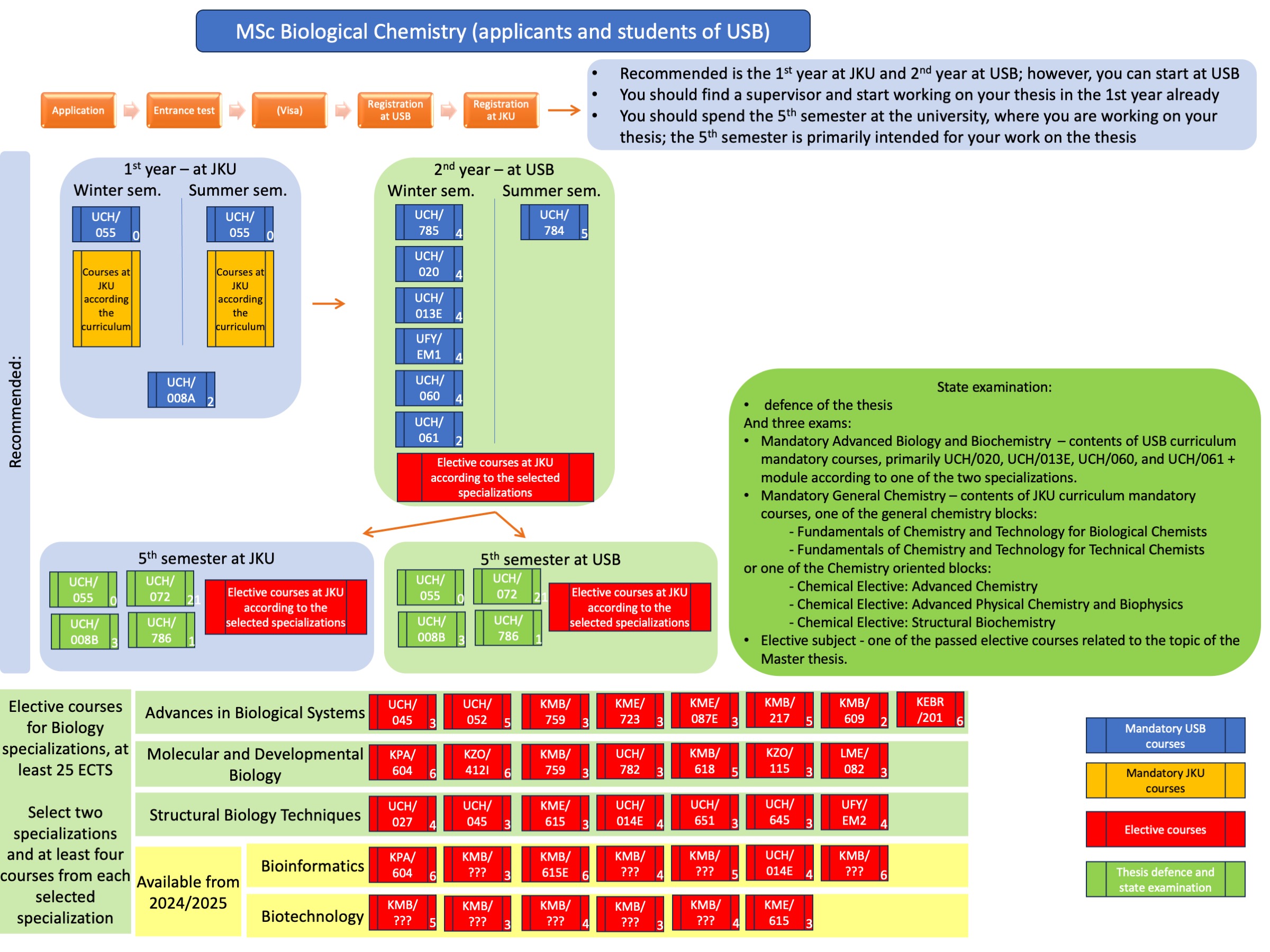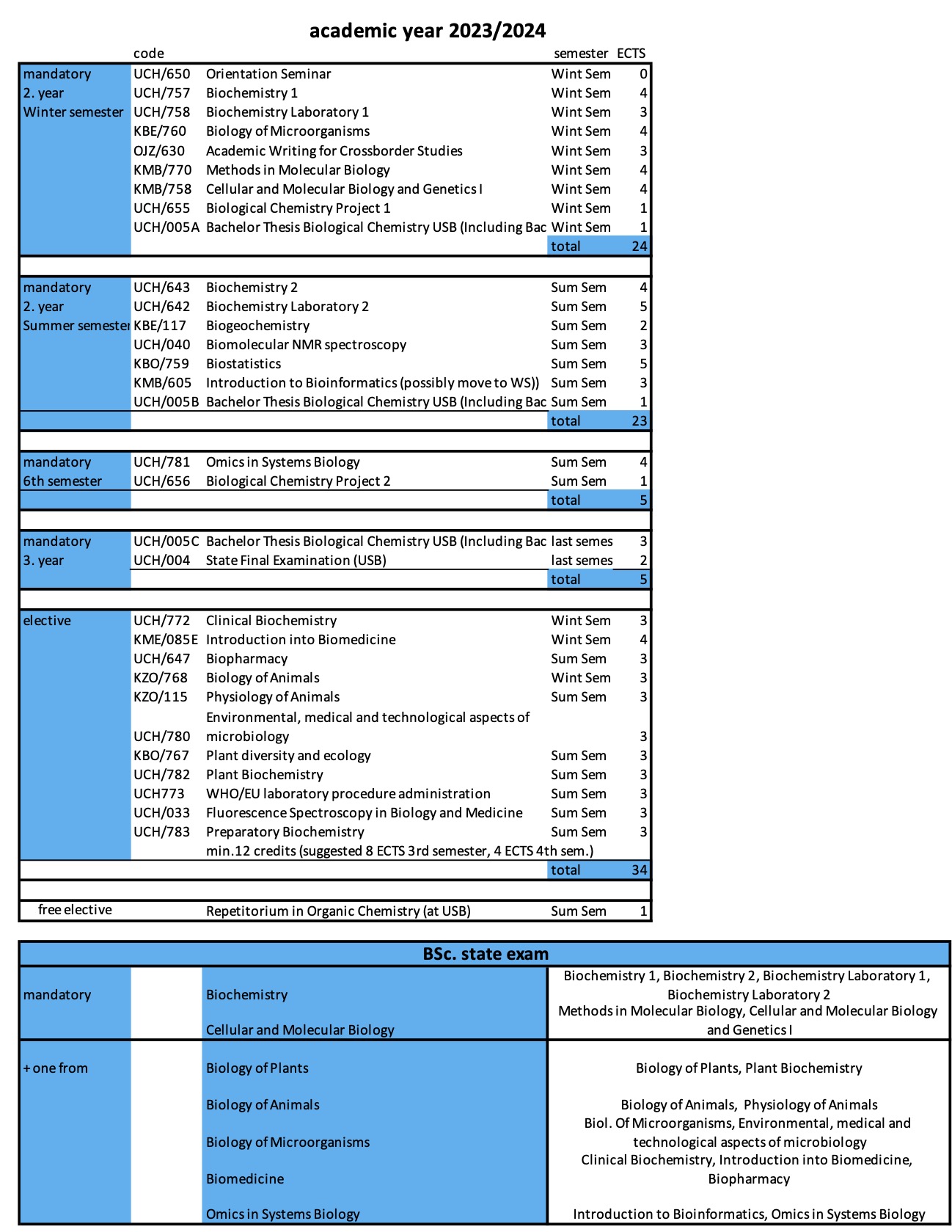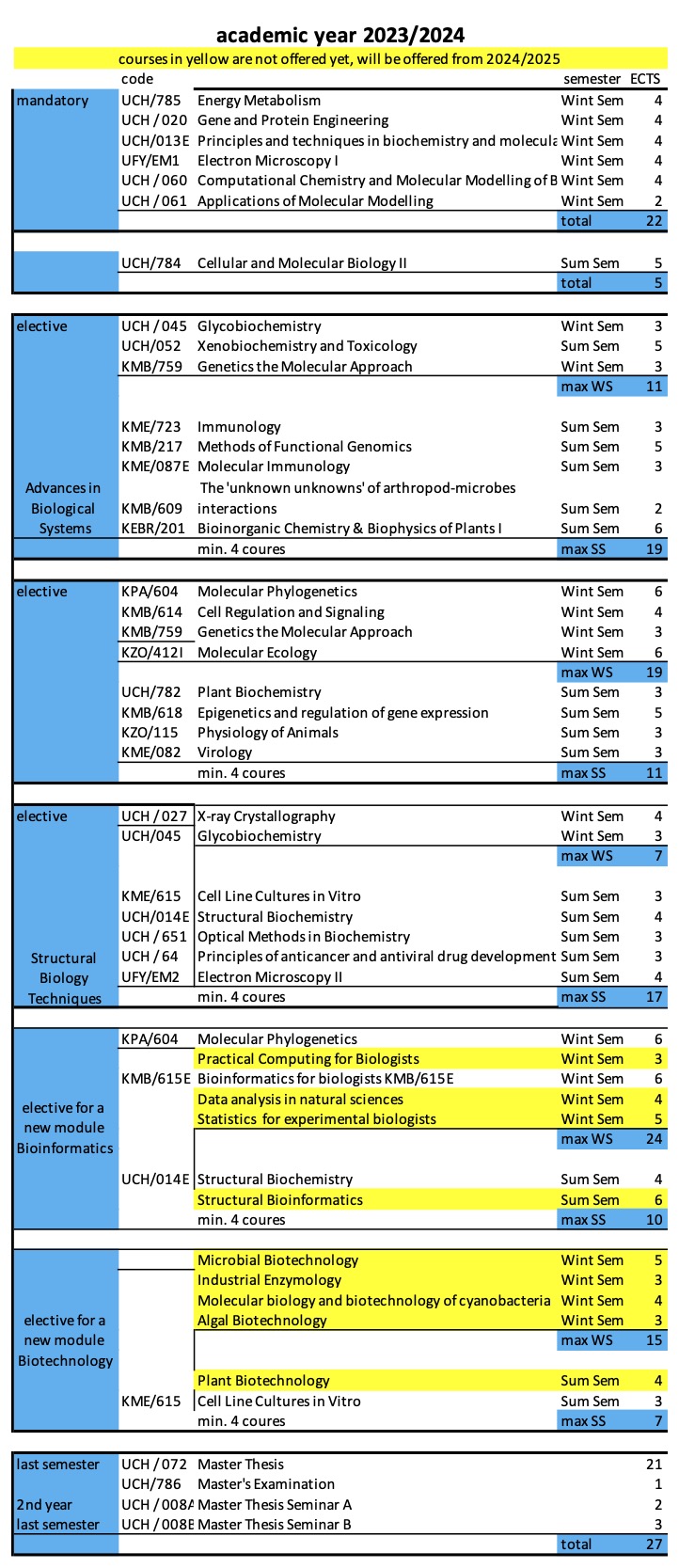topics - entrance examination Biological Chemistry
Topics - entrance exam - BSc Biological Chemistry
Mathematics
basic secondary school Mathematics, e.g., functions and graphs, equations, series, vectors, systems of equations
Chemistry
basic secondary school Chemistry, including calculations, e.g., basics of nomenclature of inorganic and organic compounds, basic calculations (molarity, molecular weight, …), periodic table and atomic structure, simple inorganic reactions, pH, basics of biochemistry (nucleotides and nucleic acids, aminoacids and proteins, saccharides).
English language
Topics - entrance exam - MSc Biological Chemistry
Biochemistry
basic secondary school Chemistry, including calculations, e.g., basics of nomenclature of inorganic and organic compounds, basic calculations (molarity, molecular weight, …), periodic table and atomic structure, simple inorganic reactions, pH, basics of biochemistry (nucleotides and nucleic acids, aminoacids and proteins, saccharides).
Biochemistry 1:
1.Introductory to Biochemistry: The origin of life; Mechanisms of molecular interactions, Metabolism.
2.Biomolecules: Amino acids; Peptides; Proteins; Carbohydrates; Lipids; Nucleic acids.
3. Enzyme catalysis I: Principles of catalysts and enzyme activity.
4. Enzyme catalysis II: Enzyme kinetics; Enzyme properties; Enzyme types.
5. Gene expression and proteosynthesis: Mechanisms of DNA replication; Transcription/the synthesis of RNA; Gene regulation in Procaryotes; Gene regulation in Eucaryotes; Translation/the synthesis of proteins; Posttranslational modification.
6. Biological membranes and membrane transport: Composition and structure; fluidity and assymmetry; transport across membranes; Methods in biomembrane research.
7. Introductory metabolism and bioenergetics: Metabolism; Thermodynamics of energetic metabolism; Biological oxidation; Coupled reactions; Experimental approach.
8. Energetic metabolism I: Carbohydrate metabolism; Compartmentation; Regulation.
9. Energetic metabolism II: The Citric acid cycle; Electron transport; Oxidative phosphorylation.
10. Energetic metabolism III: Lipid metabolism; Nitrogen utilization; Compartmentation.
11. Energetic metabolism IV: Photosynthesis and photosynthetic machinery; Photorespiration; the C4 cycle.
12. Biotransformation: Metabolism of xenobiotics; Mechanisms of biotransformation reactions; Enzymes in biotransformation, Compartmentation and physiological features.
13. Integration and regulation of energetic metabolism: Compartmentation of metabolic pathways; Functinal relatioships between pathways; Regulatory actions; Metabolic check points; Experimental approaches in metabolism.
Biochemistry 2:
1.Introductory to Biochemistry: The origin of life; Mechanisms of molecular interactions, Metabolism.
2.Biomolecules: Amino acids; Peptides; Proteins; Carbohydrates; Lipids; Nucleic acids.
3. Enzyme catalysis I: Principles of catalysts and enzyme activity.
4. Enzyme catalysis II: Enzyme kinetics; Enzyme properties; Enzyme types.
5. Gene expression and proteosynthesis: Mechanisms of DNA replication; Transcription/the synthesis of RNA; Gene regulation in Procaryotes; Gene regulation in Eucaryotes; Translation/the synthesis of proteins; Posttranslational modification.
6. Biological membranes and membrane transport: Composition and structure; fluidity and assymmetry; transport across membranes; Methods in biomembrane research.
7. Introductory metabolism and bioenergetics: Metabolism; Thermodynamics of energetic metabolism; Biological oxidation; Coupled reactions; Experimental approach.
8. Energetic metabolism I: Carbohydrate metabolism; Compartmentation; Regulation.
9. Energetic metabolism II: The Citric acid cycle; Electron transport; Oxidative phosphorylation.
10. Energetic metabolism III: Lipid metabolism; Nitrogen utilization; Compartmentation.
11. Energetic metabolism IV: Photosynthesis and photosynthetic machinery; Photorespiration; the C4 cycle.
12. Biotransformation: Metabolism of xenobiotics; Mechanisms of biotransformation reactions; Enzymes in biotransformation, Compartmentation and physiological features.
13. Integration and regulation of energetic metabolism: Compartmentation of metabolic pathways; Functinal relatioships between pathways; Regulatory actions; Metabolic check points; Experimental approaches in metabolism.
Molecular Biology
Introduction to molecular biology: History and application of molecular biology in today's science.
Molecular structure of genes and chromosome: Molecular definition of a gene, chromosomal organization of genes and noncoding DNA, structural organization of chromosomes.
Basic molecular genetic mechanisms, Replication of DNA: Understanding the central dogma of molecular biology and overview of basic molecular genetic mechanisms. Basic features of DNA replication in vivo.
Transcription and RNA processing, Translation and the genetic code: Principles of transcription in Prokaryotes and Eukaryotes, basic regulation of gene expression at transcriptional and postranscriptional level. Principles of translation, genetic code.
Mutation, DNA repair, and recombination: Molecular basis of mutations, induced mutagenesis, overview of repair mechanisms and principles of recombination.
Regulation of gene expression in Prokaryotes, Eukaryotes and the genetic control of development: Operon, molecular control of transcription in Eukaryotes, gene expression and chromosome organization, mechanisms of regulation of gene expression during development.
Molecular analysis of genes and gene products: Use of recombinant DNA technology to identify genes, molecular diagnosis of human diseases.
Recombinant DNA technology, the polymerase chain reaction: Cloning genes, principle of polymerase chain reaction and its applications.
Basic techniques of molecular biology: Overview of molecular biology techniques and their use in modern research.
Overview of molecular biology applications in modern basic and applied science: Summary of the course in context of using molecular biology in modern research.
General, Organic, and Analytical Chemistry
1. Atomic structure and the periodic table of elements
2. Chemical nomenclature, balancing equations
3. States of matter: gases, liquids, solids.
4. Chemical bonds and weak bonds
5. Solutions - chemistry and physical properties (solubility, solutions of acids and bases, buffer solutions)
6. Solutions - colligative properties
7. Chemical kinetics, mechanisms of reactions
8. Thermodynamics
9. Electrochemistry
10. Methods I: Chromatography, Spectrophotometry
11. Methods II: Potentiometry, Electrophoresis
• Atoms, molecules, bonding, polar and nonpolar molecules, intermolecular forces, solubilities, Lewis structures, preliminary ideas of resonance, arrow formalism, acids and bases.
• Introduction to orbitals, molecular orbital description of bonding, hybridization, structure of methane.
• Alkanes- conformational analysis, structural isomerism and nomenclature, alkyl groups.
• Alkenes- structure and bonding, nomenclature, E-Z notation, hydrogenation, relative stabilities. Alkynes- structure and bonding, relative stabilities, double and triple bonds in rings.
• Dienes and the allyl system, conjugation, introduction to the concept of aromaticity. UV spectroscopy.
• Stereochemistry- chirality, enantiomerism, R-S notation, diastereomerism, optical resolution.
• Ring systems- strain, stereochemistry of cyclohexane, conformational analysis of cyclohexane and its substituted derivatives, bicyclic and polycyclic compounds.
• Nuclear Magnetic Resonance (NMR) spectroscopy.
• Infrared (IR) spectroscopy.
• Alkyl halides, substitution reactions of alkyl halides- SN 2 and SN 1 mechanisms. Elimination reactions- E1 and E2 mechanisms.
• Overview of substitution and elimination reactions, oxidation of alcohols, rates and equilibria, syntheses.
• Acids and bases revisited. Additions to alkenes- mechanism of hydrogen halide additions, regiochemistry, resonance effects, carbocation stabilities, addition of other unsymmetrical reagents, hydroboration, dimerization and polymerization of alkenes.
• Carbocation rearrangements, addition of halogens to alkenes, oxymercuration, epoxidation and chemistry of oxiranes, cyclopropanation, carbenes, ozonolysis, alkene oxidations with permanganate and osmium tetroxide, addition reactions of alkynes.
Tools in the analytical laboratory; Fundamentals of precipitation titrations, acid-base titrations, complexometric titrations, redox titrations (including calculations of titration curves, detection of end points, applications); Theory of potentiometry (redox potential, electromotive force, electrodes of the first and second kind, redox electrodes, indicator and reference electrodes), applications of potentiometry (pH electrode, ion-selective electrodes, potentiometric titrations); Amperometric sensors, amperometric titrations; Coulometric Titrations; Conductometric analysis; Introduction to spectoscopy, instrumentation for molecular absorption spectroscpy in the UV-visible range, atomic spectroscopy, fluorescence spectroscopy, IR spectroscopy. Introduction to chromatographic techniques.
English language
Číst dál …topics - entrance examination Biological Chemistry
- Přečteno: 12314
